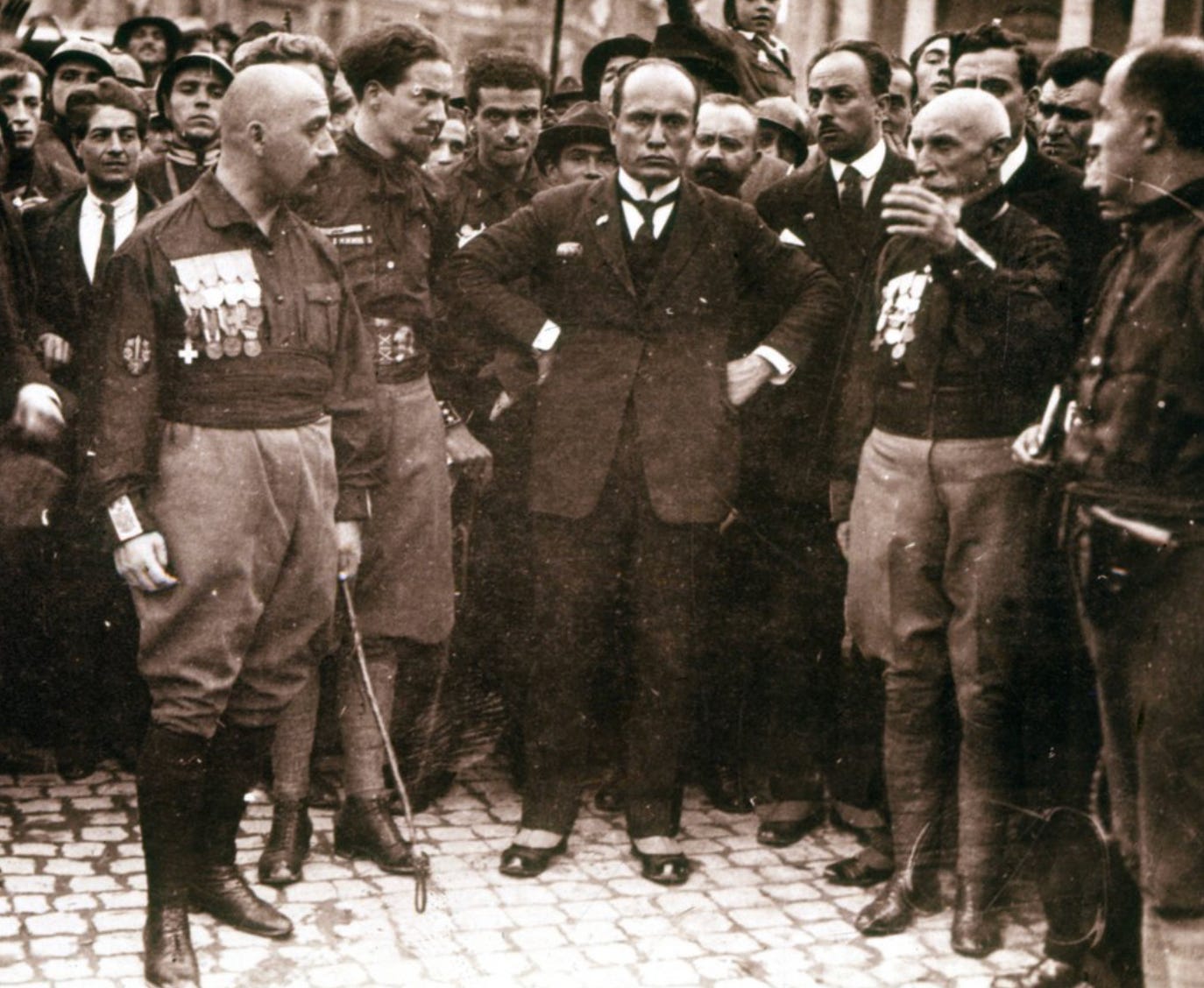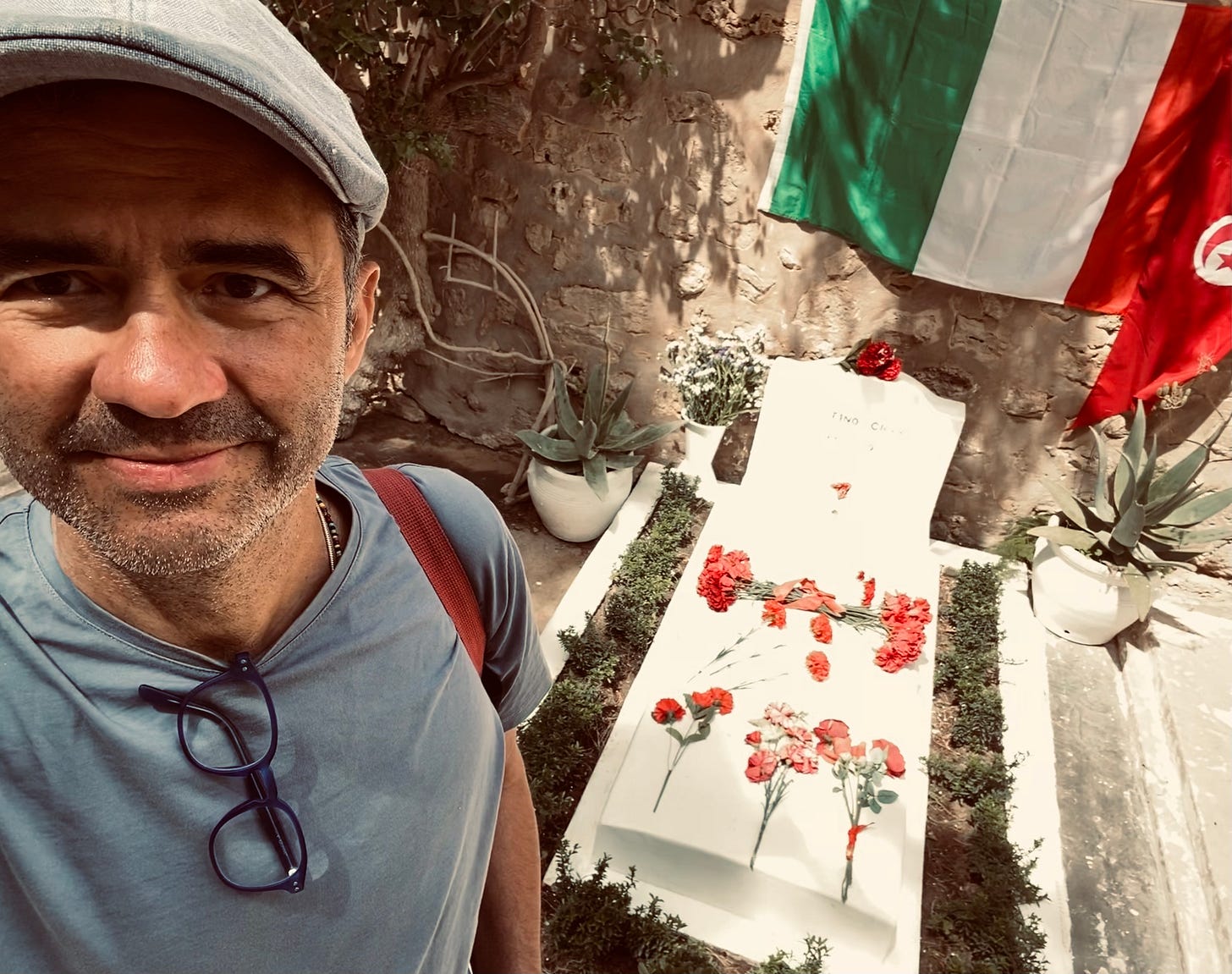‘Io sono Giorgia!’
How a viral speech (and some lucky timing) reshaped Italian politics
Six years ago, Giorgia Meloni took the stage at a far-right political rally in Rome’s San Giovanni neighborhood that changed the course of her career -- and maybe Italian politics.
“Io sono Giorgia!” she shouted -- “I am Giorgia! I am a woman! I am a mother! I am Italian! I am Christian!”
The moment went viral.
Her words were remixed into a pulsing techno anthem that for a time lit up Italy’s social media and its dance floors. Depending on who you asked at the time, the refrain was either a badge of honor or a national punchline.
Going into the speech, few would have predicted Meloni would become anything more than a political footnote. She’d been elected to parliament a dozen years earlier and for three years ending in 2011 she was Minister of Youth in Silvio Berlusconi’s final government, a low-profile post in a crumbling right-of-center coalition.
Then her career stalled. After Berlusconi was forced from office, she co-founded the nationalist Brothers of Italy party. But its support peaked in the mid-single digits. A bid to be mayor of Rome in 2016 was a flop -- she finished third, failing to make the runoff that elected another woman, Virginia Raggi, as the first female mayor of the Eternal City.
Even at the rally in San Giovanni, Meloni wasn’t the main attraction. She spoke to crowds thinning out after hearing Matteo Salvini, the brash leader of the anti-migrant Lega party, and an aging Berlusconi, who still loomed large over the Italian right.
But everything changed after “Io sono Giorgia!”
“Meloni has done well, but she benefited from being in the right place at the right time,” said John Hooper, a long-time Italy-watcher and author of The Italians. “Her party was the next alternative after right wing voters tired, first of Berlusconi, then of Salvini.”
This October will mark Meloni’s third year as prime minister. But her influence now extends far beyond Palazzo Chigi. She has emerged as such a prominent figure in the European Union that a recent Time magazine cover story on her was headlined “Where Giorgia Meloni is leading Europe.”1
She’s also been cast as a kind of “Trump whisperer”: the European Union leader best positioned to navigate the return of an unpredictable U.S. president who remains deeply unpopular in Europe.
The legacy that lingers
Meloni critics say it’s a telling coincidence that Meloni ascended to the nation’s highest political office almost exactly 100 years after Benito Mussolini’s infamous March on Rome.

Her ties to Italy’s Fascist legacy go beyond that anniversary: as a teenager in Rome, she joined the youth wing of the Italian Social Movement (MSI), a post-World War II party founded by former Fascists. Even today, her party’s logo resembles the one MSI used as far back as 1946. In interviews, she has called Mussolini a “complex figure” who “made mistakes,” while at the same time praising his leadership style -- something that continues to unnerve many.
Meloni has spoken often about the over-sized influence certain childhood authors played in shaping her views -- none of them more than Lord of the Rings author J.R.R. Tolkien, a book Meloni once said was her “sacred text.”2
But there were more worrying aspects to her years on the political fringe. She often talked about “ethnic substitution” -- her phrase for what she said was a global plot to erase national identities -- and she called for a military-style mission to prevent asylum seekers from North Africa from reaching European waters. She said NATO was outdated while denouncing Brussels as an “elite technocracy” determined to undermine Italian sovereignty. Meloni said Italy should consider leaving the euro currency zone and returning to the lira. She was also supportive of Russia’s Vladimir Putin, arguing against sanctions in the wake of Russia’s occupation of Crimea in 2014 and in 2021 she said Russia represented an “ideal” of European identity.
But since taking office she’s surprised many -- including me -- by governing more moderately and cautiously than expected.
She’s softened the Euro-skeptic and NATO-skeptic rhetoric and she’s been a firm supporter of Ukraine in its war with Russia that started half a year before she took office.
She’s largely avoided culture war battles and governed pragmatically on foreign policy. She pulled out of China’s Belt-and-Road Initiative, five years after Italy became the only large, industrialized country to join. During the European Union’s talks on tariffs, Meloni was a voice of reason among European leaders, and she has Italy on the vanguard of plans to limit the risks of artificial intelligence.
“It almost always happens that a sometimes-extreme figure in opposition becomes more moderate upon taking power,” said Franco Pavoncello, a political scientist and president of John Cabot University in Rome. “In Meloni’s case, I think her views have evolved as she’s understood that extreme rhetoric that can work from the outside doesn’t lend itself to governing.”3
None of that means Meloni’s tenure has been without controversy. She no longer calls for a blockade of North Africa, but she’s pushed hard to set up costly refugee processing centers in Albania that have consistently been ruled illegal by European and Italian judges (it’s still under appeal). She continues to oppose same-sex parenting, surrogacy, and access to abortion. Meloni’s government introduced sweeping reforms aimed at limiting political protest and has sought to tighten control over the media, especially state broadcaster RAI.
“None of this is a surprise,” said Elly Schlein, head of the main center-left party and the leader of the political opposition. “They’re doing all the same things happening in all the states under the control of the extreme right.”
Three years of Meloni
In a country where governments rarely last, Meloni has proved unusually resilient.
As of this post, Meloni’s government has lasted 1,018 days. The country has had 65 governments in the 79 years since its 1946 constitution, and Meloni’s is already the sixth longest. But if the government survives until Jan. 1 (which is likely) it will surpass the 1983-1987 government of Bettino Craxi by a day, making it second behind only Berlusconi’s 2001-2005 government.
NB: Both Berlusconi and Craxi ultimately resigned their posts amid scandal.
“The government has been stable, not only because Meloni’s party is the most viable option on the right but because it’s had billions in pandemic recovery money to spend,” said Hooper. “She’s had a bit of good fortune. Even in Europe, Italy’s influence has been helped by internal problems in France and Germany, the traditional powers.”
It remains to be seen whether Meloni’s rise is an example of what happens when political skill intersects with some lucky breaks, or whether it is changing the way power in Italy and Europe is negotiated and legitimized.
📌 And another thing…
I can’t vote in Italy. But if I could have cast a ballot in the last election, I would not have voted for Meloni’s Fratelli d’Italia. I don’t share her worldview, her nostalgia for certain extremist traditions, or her often polarizing rhetoric.
The political situation in Italy and in many other countries reminds me of a philosophical dilemma that arises with any national leader I mostly disagree with. Italy is my adopted home, and I want it to succeed. I know that a national leader’s success or failure has consequences for everyone.
I don’t want to overstate the influence of any one person, but should I support a leader when we share priorities … even if I oppose them on others? I agree with Meloni’s strong backing of Ukraine, for example, or her efforts to rein in the risks of artificial intelligence. I think abandoning the Belt-and-Road Initiative was the right decision.
Or should her views on asylum seekers, surrogacy, and the environment be enough for me to want her to fail across the board?
Most people these days choose the latter, which helps explain why the world is so polarized.
It’s a lonely position, but I usually try to walk a delicate line that leaves me in the minority. I want a leader I disagree with to do well, but not so well that his or her worst instincts become emboldened.
What about you?
Come back next week for another post from The Italian Dispatch.
This post you are reading now was partially inspired by the vivid comments to a Substack Note I posted about the Time cover.
I’m glossing over this here, but there’s much more I could mention. If you’re curious, I highly recommend Hooper’s highly entertaining coverage of the topic in The Economist from last year.
Benito Mussolini, Meloni’s antecedent, and Donald Trump in the U.S. are two counterexamples I came up with as figures who became more extreme once in office.







It’s almost incredible (but probably predictable) that the most reasonable voices on Meloni come from abroad, thank you for your post. I disagree with everything she represents, everything she stands for, the famous Io sono Giorgia speach made me sick, and yet I must say she is a better prime minister than I thought possible (admittedly my bar was very low) and I am less ashamed at being represented by her than I was of Berlusconi, to say a name. And Italy finally has a woman in leadership.
No offense, man, but does that mean you would have supported some aspects of Mussolini in the 1920s, What about Hitler or Franco? No, I like your writing but I disagree ... when there's a leader like Meloni you have to reject her whole agenda and hope the country survives until she's gone.